7. The beginning of side a on the Keiti tablet could therefore
very well have been intended to correspond to the place where the
Full Moon would (ideally) have reached Alcyone (*56 = 136
= 236 - 100). Anciently this place in time-space would then have been
located to day 136 - 64 = 72 (→ 360
/ 5) = 365 + 72 = 437 (→
Bunda, the Foundation, *327). The Mesopotamians regarded
Alcyone as the Foundation Stone (Temennu).
|
Nov 14 (318) |
15 (137 + 182) |
16 (320) |
17 (504 - 183) |
18 (320
+ 2) |
|
VISIBLE CLOSE TO THE FULL MOON: |
|
Hairy Head-18 (Cockerel)
/
Temennu-3 (Foundation Stone)
ALCYONE
(56.1),
PLEIONE (28 Tauri), ATLAS (27 Tauri)
(56.3) |
MENKHIB (Next to the Pleiades =
ζ
Persei
(57.6)
PORRIMA (γ Virginis) |
ZAURAK (Boat) = γ Eridani
(58.9) |
λ Tauri (59.3), ν Tauri (59.9) |
4h (60.9)
JĪSHUĬ = λ
Persei
(60.7)
COR
CAROLI (α Canum Ven.) |
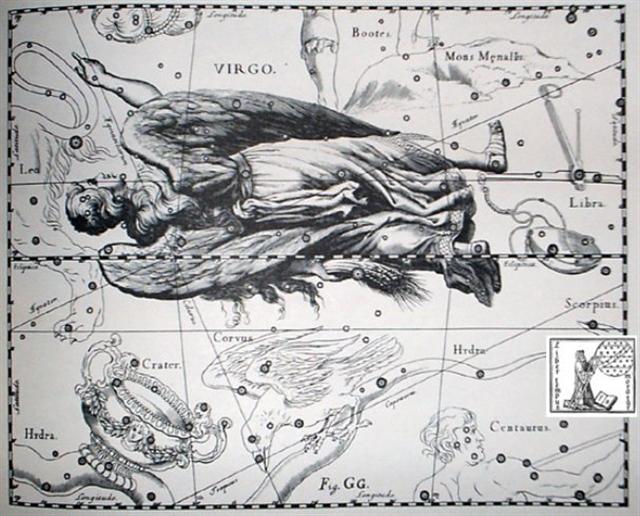 |
|
May 16 (501) |
17 |
18 (74
+ 64) |
19 (139) |
20 (20 weeks) |
|
'April 19 |
20 |
21 (111) |
22 (139 - 27) |
23 |
|
"April 5 |
6 |
7 (88 = 74 + 14) |
8 |
9 (99 = 140 - 41) |
|
MARCH 13 |
14 → 3-14 |
15 (74) |
16 |
17 |
 |
 |
 |
 |
 |
|
Ea1-1 |
Ea1-2 |
Ea1-3 |
Ea1-4 |
Ea1-5 |
|
E hakamata hia
tu mai tae vahu ku huku hia te
vaha ko te tagata - kua mau ki te
hukiga |
|
Va.
1. Hakava, judge, judgement. T Mgv.: akava,
to judge, to pass sentence. Pau.: haava, to judge, to
conjecture. Ma.: whakawa, to charge with crime, to
condemn. Ta.: haava, to judge. 2. Hakava, to
speak. P Mgv.: va, to speak. Mq.: vaa, to
chatter like a magpie. The Marquesan retains more of the
primal sense although the simile is an alien importation. In
Samoa va means a noise, in Tonga va is a
laughing noise, in Futuna va is the disorderly cry of
tumult, and probably it is the initial element of Viti
wa-borabora to speak quickly and confusedly as when
scolding. Its only identification in Tongafiti territory is
Hawaii wawa the confused noise of a tumult ...
Churchill. Ta.: va, space between the leaves in a
roof. Sa.: va, space between. Ma.: wa,
interval. Churchill.
Hu. 1. Breaking of wind. T Mgv.,
uu, to break wind. Mq., Ta.: hu, id. 2. Whistling
of the wind, to blow, tempest, high wind. P Pau.: huga,
a hurricane. Churchill. Mgv.: hu, to burst, to
crackle, to snap. Ha.: hu, a noise. Churchill.
Ha. 1. Four. 2. To breathe.
Hakaha'a, to
flay, to skin. Vanaga. 1. Four. P Mgv., Mq., Ta.: ha, id.
2. To yawn, to gape. 3. To heat. 4. Hakaha, to skin,
to flay; unahi hakaha, to scale fish. Mgv.: akaha,
to take to pieces, to take off the bark or skin, to strip
the leaves off sugarcane. 5. Mgv: ha, sacred,
prohibited. Mq.: a, a sacred spot. Sa.: sa,
id. Churchill.
Vaha.
Hollow; opening; space between the fingers (vaha rima);
door cracks (vaha papare). Vahavaha, to fight,
to wrangle, to argue with abusive words. Vanaga. 1. Space,
before T; vaha takitua, perineum. PS Mgv.: vaha,
a space, an open place. Mq.: vaha, separated, not
joined. Ta.: vaha, an opening. Sa.: vasa,
space, interval. To.: vaha, vahaa, id. Fu.:
vasa, vāsaà, id.
Niuē: vahā. 2.
Muscle, tendon; vahavaha,
id. Vahahora (vaha
1 - hora 2),
spring. Vahatoga
(vaha 1 -
toga 1), autumn. 3. Ta.:
vahavaha, to
disdain, to dislike. Ha.: wahawaha,
to hate, to dislike. Churchill.Vaha.
Hollow; opening; space between the fingers (vaha
rima); door cracks (vaha papare). Vahavaha,
to fight, to wrangle, to argue with abusive words. Vanaga.
1. Space, before T; vaha takitua, perineum. PS Mgv.:
vaha, a space, an open place. Mq.: vaha,
separated, not joined. Ta.: vaha, an opening. Sa.:
vasa, space, interval. To.: vaha, vahaa,
id. Fu.: vasa, vāsaà,
id. Niuē: vahā.
2. Muscle, tendon; vahavaha,
id. Vahahora (vaha
1 - hora 2),
spring. Vahatoga
(vaha 1 -
toga 1), autumn. 3. Ta.:
vahavaha, to
disdain, to dislike. Ha.: wahawaha,
to hate, to dislike. Churchill. |
|
→
INVISIBLY CLOSE TO THE
SUN: |
|
π
Cor. Borealis,
UNUK ELHAIA (Necks of the Serpents) =
λ
Serpentis
(238.1),
CHOW =
β
Serpentis
(238.6) |
κ
Serpentis (239.3),
δ
Cor. Borealis,
TIĀNRŪ =
μ
Serpentis
(239.5),
χ
Lupi, (239.6),
ω
Serpentis (239.7),
BA (= Pa) =
ε
Serpentis,
χ
Herculis (239.8).
κ
Cor.
Borealis, ρ Serpentis (239.9) |
λ
Librae (240.0),
β
Tr. Austr. (240.3),
κ
Tr. Austr. (240.4),
ρ
Scorpii (240.8)
*199.0 =
*240.4 - *41.4 |
Iklīl al Jabhah-15 (Crown of the Forehead)
/
Anuradha-17 (Following
Rādhā)
/
Room-4 (Hare)
ξ
Lupi,
λ Cor. Bor.(241.1),
ZHENG =
γ
Serpentis,
θ
Librae (241.2),
VRISCHIKA =
π
Scorpii
(241.3),
ε
Cor.
Borealis (241.5),
DSCHUBBA
(Front of Forehead) = δ Scorpii
(241.7), η Lupi (241.9) |
υ
Herculis (242.3),
ρ
Cor. Borealis (242.4),
ι
Cor. Borealis (242.5),
θ
Draconis (242.6),
ξ
Scorpii (242.7)
SCHEDIR (Breast) α
Cassiopeiae
*201.0 = *242.4 - *41.4 |
|
Nov 19 |
20 (324) |
|
VISIBLE CLOSE TO THE FULL MOON: |
|
υ Persei (61.2) |
BEID (Egg) =
ο¹
Eridani
(62.2),
μ
Persei (62.8)
VINDEMIATRIX ( ε Virginis) |
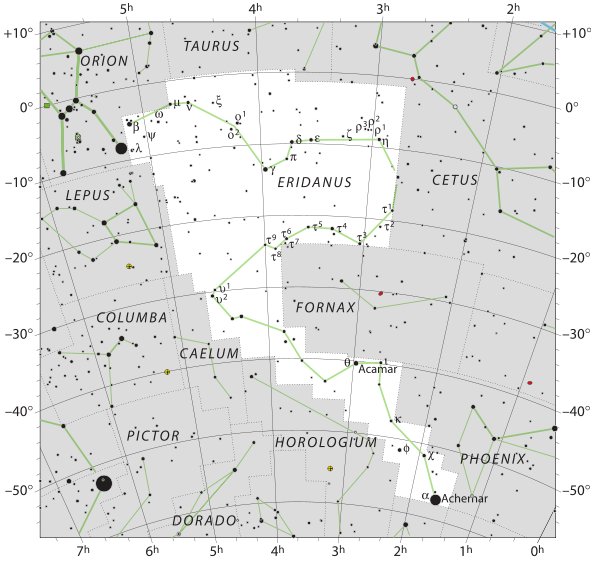 |
|
May 21 (365 + 141 = 506) |
22 (*62) |
|
'April 24 (506 - 27 =
479) |
25 (*35
= 115 - 80) |
|
"April 10 (100) |
11
(*21) |
|
MARCH 18 (442) |
19 (78) |
 |
 |
|
Ea1-6 |
Ea1-7 |
| rere
te toki rere ki uta |
rere
ki te vao |
|
Uta.
Higher up (from the coast, or from another place); i
uta era, further up, up there; ki î te îka i uta,
as there are lots of fish on the beach. Vanaga. 1. Inland,
landward; paepae ki uta, to strand, to run aground;
mouku uta, herbage. 2. To carry; uta mai, to
import; hakauta, to give passage. Campbell.
Vao.
Mgv.: vao, uninhabited land. Ta.: ? [obliterated
text] ... of the valleys. Mq.: vao, bottom of a
valley. Sa.: vao, the bush. Ma.: wao, the
forest. Churchill.
Honui. 1. Person worthy of respect, person of
authority. 2. Livelihood, heirloom, capital;
ka moe koe ki toou hônui, you must marry to ensure
your livelihood (said to a little girl); he hônui mo
taaku poki, this is the heirloom for my son. Vanaga.
Great (hoonui); honui, chief T.; tagata
hoonui, personage; hakahonui, to praise, to
commend. Churchill.
|
|
→
INVISIBLY CLOSE TO THE
SUN: |
|
16h (243.5)
ACRAB (Scorpion) = β Scorpii,
JABHAT AL ACRAB (Forehead of the Scorpion) = ω Scorpii
(243.3), θ Lupi,
RUTILICUS = β Herculis
(243.5),
MARFIK (Elbow) = κ Herculis
(243.7), φ Herculis (243.8) |
ψ
Scorpii (244.6),
LESATH (Sting) =
ν
Scorpii
(244.8) |
 |
|
Nov 21 (506 - 181 = 325) |
→
22 (80 + 246 = 326) |
|
VISIBLE CLOSE TO THE FULL MOON: |
|
Al Dabarān-2 (The
Follower)
HYADUM I =
γ
Tauri (63.4)
*22.0 = *63.4 - *41.4 |
HYADUM II = δ¹ Tauri
(64.2) |
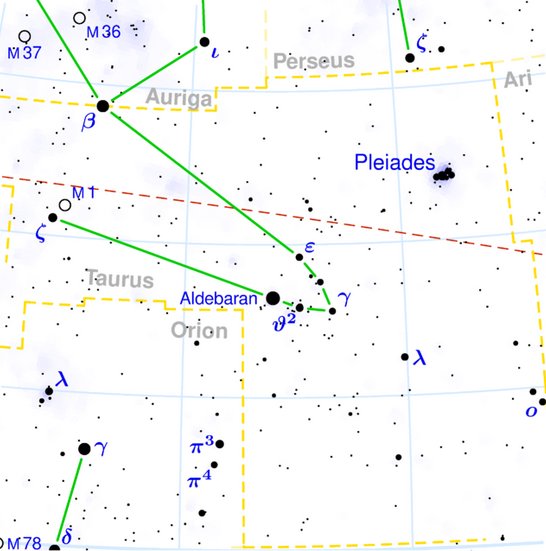 |
|
May 23 (508 = 444 + 64 =
*63) |
24 (*64 = 144 - 80) |
|
'April 26 (481 = 508 -
27) |
27 (*37 = *64 - *27) |
|
"April 12 (*22) |
13 (144 - 41 = 103) |
|
MARCH 20 (*364 = 444 -
80) |
21 (80 = 144 - 64) |
 |
 |
|
Ea1-8 |
Ea1-9 |
| rere
te toki |
rere
ki hau tea - eko te toki |
|
Toki.
Small basalt axe. Vanaga. Stone adze. Van Tilburg.
Ha'amoe ra'a toki = 'Put the adze to sleep' (i.e. hide
it in the temple during the night). Barthel. Month of the
ancient Rapanui calendar. Fedorova according to
Fischer. To'i. T. Stone adze (e to'i purepure
= with the wounderful adze). Henry. The Araukan Indians in
the coastal area of northern Chile, have customs similar to
those on the Marquesas and in both areas toki means
adze according to José Imbelloni. The Araukans also called
their chief of war toki and the ceremonial adze
symbolized his function and was exhibited at the outbreak of
war. In Polynesia Toki was the name of a chief
elevated by the Gods and his sign was the blade of a toki.
Fraser. Axe, stone hatchet, stone tool ...; maea toki,
hard slates, black, red, and gray, used for axes T. P Pau.:
toki, to strike, the edge of tools, an iron hatchet.
Mgv.: toki, an adze. Mq.: toki, axe, hatchet.
Ta.: toi, axe. Churchill. A Maori saying: he iti
toki, e rite ana ki te tangata = though the adze be
small, yet does it equal a man. (Starzecka) |
|
→
INVISIBLY CLOSE TO THE
SUN: |
|
χ
Scorpii (245.1),
YED PRIOR (Hand in Front) =
δ
Ophiuchi,
δ
Tr.
Austr. (245.5) |
YED POSTERIOR (Hand Behind) =
ε
Ophiuchi,
RUKBALGETHI SHEMALI (Northern Knee of the Giant) =
τ
Herculis
(246.6).
δ
Apodis (246.7),
ο
Scorpii (246.8) |
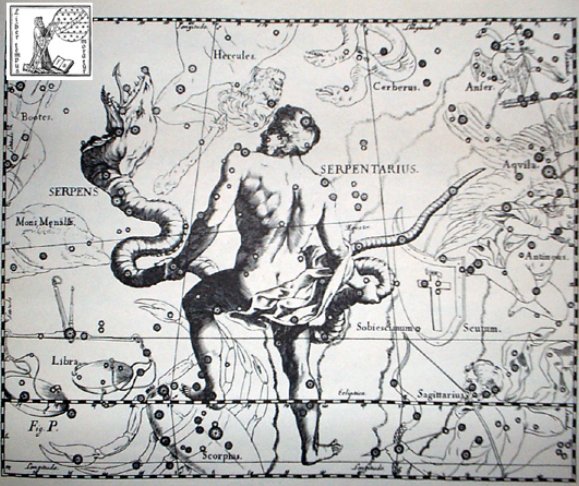 |
On the other hand, there was presumably a great dormant original
structure which could be reused time and again when the
precession had carried the path of the Sun and the other
living (moving) stars, planets, to new cardinal points.
... Vainamoinen set about building a boat, but
when it came to the prow and the stern, he found he needed three
words in his rune that he did not know, however he sought for them.
In vain he looked on the heads of the swallows, on the necks of the
swans, on the backs of the geese, under the tongues of the reindeer.
He found a number of words, but not those he needed. Then he thought
of seeking them in the realm of Death, Tuonela, but in vain. He
escaped back to the world of the living only thanks to his potent
magic. He was still missing his three runes.
He was then told by a shepherd to search in the
mouth of Antero Vipunen, the giant ogre. The road, he was told, went
over swords and sharpened axes. Ilmarinen made shoes, shirt and
gloves of iron for him, but warned him that he would find the great
Vipunen dead. Nevertheless, the hero went. The giant lay
underground, and trees grew over his head. Vainamoinen found his way
to the giant's mouth, and planted his iron staff in it. The giant
awoke and suddenly opened his huge mouth. Vainamoinen slipped into
it and was swallowed. As soon as he reached the enormous stomach, he
thought of getting out. He built himself a raft and floated on it up
and down inside the giant. The giant felt tickled and told him in
many and no uncertain words where he might go, but he did not yield
any runes. Then Vainamoinen built a smithy and began to hammer his
iron on an anvil, torturing the entrails of Vipunen, who howled out
magic songs to curse him away. But Vainamoinen said, thank you, he
was very comfortable and would not go unless he got the secret
words. Then Vipunen at last unlocked the treasure of his powerful
runes. Many days and nights he sang, and the sun and the moon and
the waves of the sea and the waterfalls stood still to hear him.
Vainamoinen treasured them all and finally agreed to come out.
Vipunen opened his great jaws, and the hero issued forth to go and
build his boat at last ...
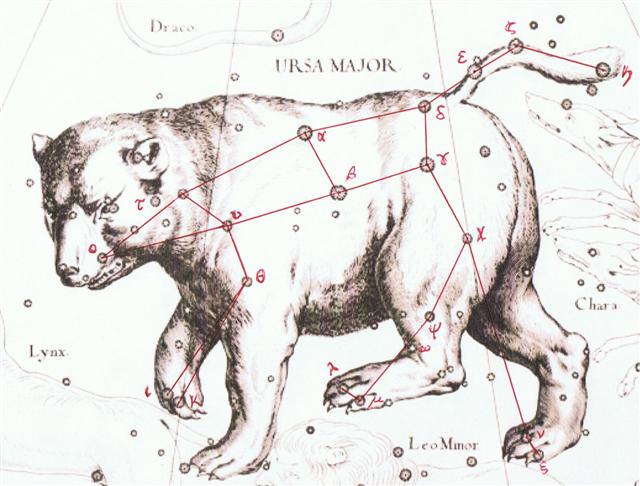
|
ALCYONE (136) |
*100 |
TANIA AUSTRALIS (236) |
|
May 16 (*56) |
Aug 24 (*156) |
|
σ Virginis (280 = 136 + 64 + 80) |
*100 |
ALTAIR (380 = 136 + 236 + 8) |
|
AUG 4 (*136) |
NOV 12 (*236) |
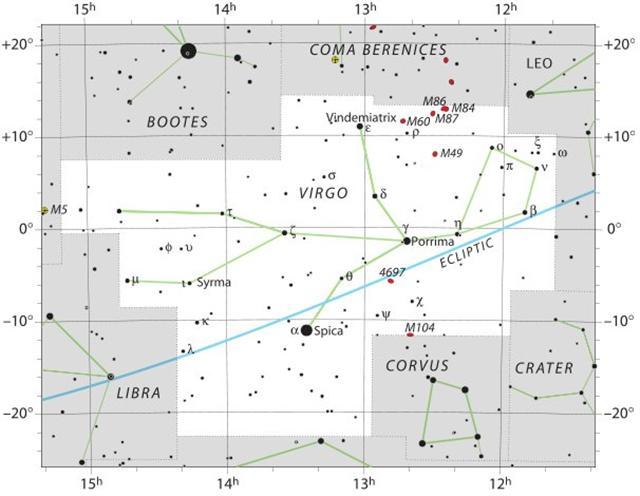
Therefore I
cannot give any proof that my guess as to the place of
Alycone (the Foundation Stone) at the beginning of the
text is correct. Ea1-1 could
be
a beginning at heliacal Alcyone, or a beginning with σ
Virginis, or a beginning at some other prominent star. However,
we should here by the way recognize σ as
the variant of Σ which was used earlier than at the end
of a sentence (word) - which instead was described by ς:
|
Egyptian tusk |
 |
Phoenician
shin |
 |
Greek
sigma |
Σ (σ, ς) |
|
Wikipedia: Shin (also
spelled Šin (šīn) or Sheen)
literally means 'teeth, 'press', and 'sharp' ...
The symbol Σ is currently used
as an expression for 'sum'. The Phoenician
shin is oriented in another way, similar to
how Cassiopeia is read in the night when
in a low position - as Celestial W when
below the pole, in contrast to the Celestial
M when above it.
Greek
sigma therefore
resembles Cassiopeia in between, when she was in
the west at the time when the Sun was rising in
the east.
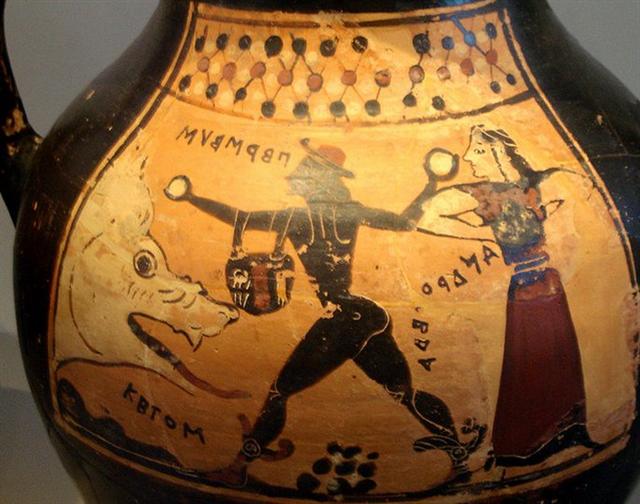 |
The beginning
could be at some other cardinal point than at day 136 or day 280.
Which all is very well (maitaki
maharoga), because proofs are misleading most of us to
stop thinking, in making us stop reconsidering, in making us stop turning
around to look
again. Making us stop looking for some primordial master key.
Although, as I remember having read about it, such a great
matematician as Gauss always continued to search for more proofs
of the same thing.

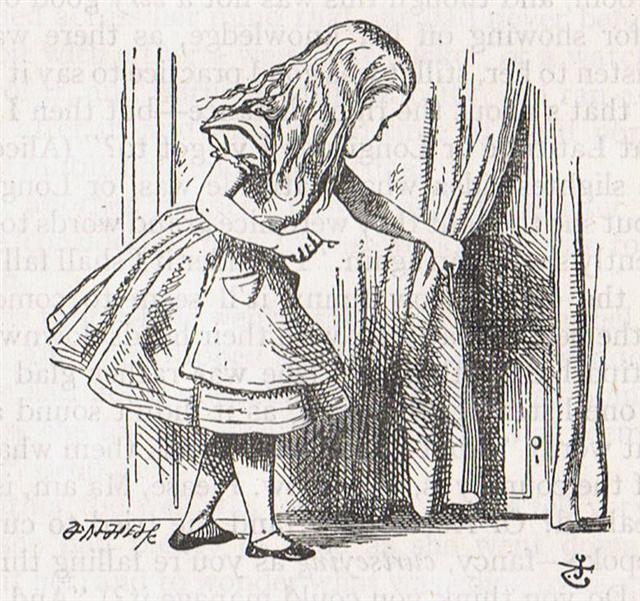
|















